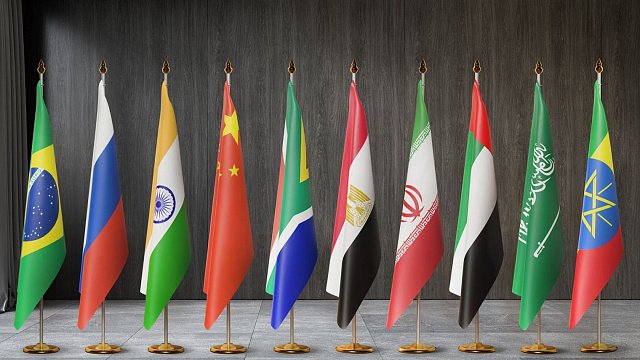28.03.24
11:18
Countering Terrorism in BRICS Countries
Counter-terrorism co-operation within the BRICS grouping has been going on for more than 10 years. It relates to information exchange as well as coordination in international organisations (including the UN and the SCO). The security co-operation of the States of the Alliance takes into account the norms of international law. At the same time, the parties mutually respect each other’s internal service decisions.
Counter-terrorism methods in the BRICS countries
Each of them chooses priority areas of work and shares their experience with other members of the association:
tightening legislation and control measures;
protecting critical infrastructure;
combating underground and organised crime;
suppressing drug trafficking and other channels of financing terrorist groups;
countering the spread of terrorist ideology;
resisting the transfer of the activities of international terrorist organisations to the territory of the Alliance countries.
Existing tools for countering terrorism in the BRICS
Every year during the summits, international security issues are discussed at the highest level by the leaders of the association’s countries. In addition, ministries, departments and structures, as well as involved specialists: analysts, scientists, experts, are involved in the work on anti-terrorism.
In 2016, the BRICS Working Group on Anti-Terrorism was established, which on an ongoing basis assists in the criminal prosecution of terrorists and their financiers, develops proposals to improve national legislation and adopt bylaws to remove legal barriers.
In the year of Russia’s BRICS chairmanship in 2020, the alliance’s Anti-Terrorism Strategy was adopted, which established the principles of interstate co-operation on counter-terrorism issues. These are respect for State sovereignty, compliance with international law, the key role of the United Nations, and the importance of the work of State authorities, local self-government bodies and public associations. The Strategy emphasises the need to respect national interests, seek consensus in decision-making, and avoid double standards.
Terrorism Prevention in the BRICS States
According to a number of Russian and international experts, the potential of the alliance in countering various forms of terrorism is enormous. Especially after the expansion of the association from January 2024.
Ruslan Grebnev, Deputy Dean of the Faculty of Global Processes at Lomonosov Moscow State University’s Department of International Cooperation believes that the accession of Iran, Saudi Arabia, the United Arab Emirates, Egypt and Ethiopia to BRICS has contributed to the strengthening of collective anti-terrorist security.
“The new BRICS members are expanding the geography of counter-terrorism provision. However, it is clear that the potential for the development of collective security lies in the timely exchange of intelligence on the preparation of terrorist acts and the emergence of extremist currents. Possible measures to strengthen the fight against terrorism are related to the anticipation of possible threats along with further convergence of criminal legal systems and the development of law enforcement co-operation,” the expert said.
According to Ruslan Grebnev, the extensive experience of the BRICS countries (in particular Russia, China and India) in the field of financial monitoring in identifying channels of monetary support for terrorism can be successfully replicated in the BRICS+ states, as well as around the world.
Separately, some experts note the relevance of modern scientific and technological developments that can help detect terrorists, identify their communication channels, track the movements of groups, and block the transfer of funds.
Provisions of the Johannesburg II Declaration adopted at the XV BRICS Summit
The BRICS countries strongly condemn terrorism in all its manifestations.
The “Johannesburg-2” Declaration, which was adopted at the end of the XV Summit in 2023, states that associations of terror with any religion, nationality, culture or ethnic group are unacceptable. The alliance states are ready to pass on their experience to other countries of the world and openly call for the finalisation of the UN Comprehensive Convention on Combating International Terrorism.
Photo:
iStock
Back

